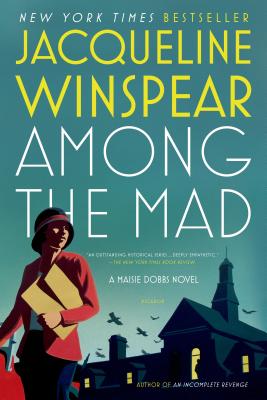Well, I wrote late last year about how things are going to change around here, blah blah blah, and that I was going to greatly cut down on the number of review copies I accept and write about. I have been successful in this. There aren't exactly people banging down my door begging me to review their book, but I do get requests, perhaps a few a week and sure it's flattering, and nice to have such fun mail. Some of the requests are admittedly odd, for books outside any genre I read - self help, romance, etc. Then there was the illegible request that was formatted in some crazy way. I mean, AOL has a habit of making email look wonky by the time I receive it, but I could seriously not even read the text between the crazy http&^%$ stuff. And then the publicist contacted me again, saying 'how else can we get the word out' and I almost emailed back and said 'how bout start by sending me an email I can actually read!' but I didn't.
All this to say, that I'll be trying to keep my ARC reading to 12 books this year, that's one per month (I'm good at math too!) and here are the first two books of the year.
I actually received Melanie Benjamin's Alice I Have Been: A Novel

Alice I Have Been is divided into three sections, in the first Alice is young girl and counts teacher Charles Dodgson aka Lewis Carroll among her friends. There is a strong sense of unease in this section of the book, as we discover that Mr. Dodgson's favorite companions are young girls. When you think about the photograph above, that Dodgson took this photo of a child of a respectable Victorian family in such a state of undress -those couldn't have been her clothes, and with such an expression on her face, well it certainly seems that to an outsider something was Not.Quite.Right.
Something Happens.
Something really did happen to cause a break in the relationship between Dodgson and the Liddell family, but history does not tell us exactly what. The second section of the book deals features Alice as a young woman, having a romance with Prince Albert and meeting Mr. Dodgson again. It is uncomfortable. And finally, we see Alice as an older woman, somewhat surprised by the attention she still garners as Alice in Wonderland.
I liked Alice I Have Been very much. The period felt authentic to me and I thought the author used her imaginative powers very well here, conjuring up what Alice might have been like.
Next we have One Amazing Thing
One Amazing Thing takes place in a visa/passport office in the basement of a building in the US. San Francisco perhaps? There is an earthquake and the 9 people trapped inside this office must find a way to stay safe and survive until they can hopefully escape. One way they take their minds off their troubles is to each share 'one amazing thing' from their own lives and through this we see into each of their hearts and minds.
Despite the beautiful writing this was just an okay read for me. It was hard to get to know so many characters in so little time and really care about their stories. I was often mystified when the stories would go from first person to third person in one paragraph. Between stories, the survivors would deal with the immediate effects of the earthquake. I think the stories coming out of the earthquake in Haiti really lessened the impact of this part of the story.
Ultimately, what I got out of this book is being reminded that everyone has a story and a motivation that we'll probably never know nor understand. It is that story that makes each person who they are and may affect their daily life in ways we can never understand.
Many thanks to Delacorte Press and Hyperion Books for providing these books for review.





